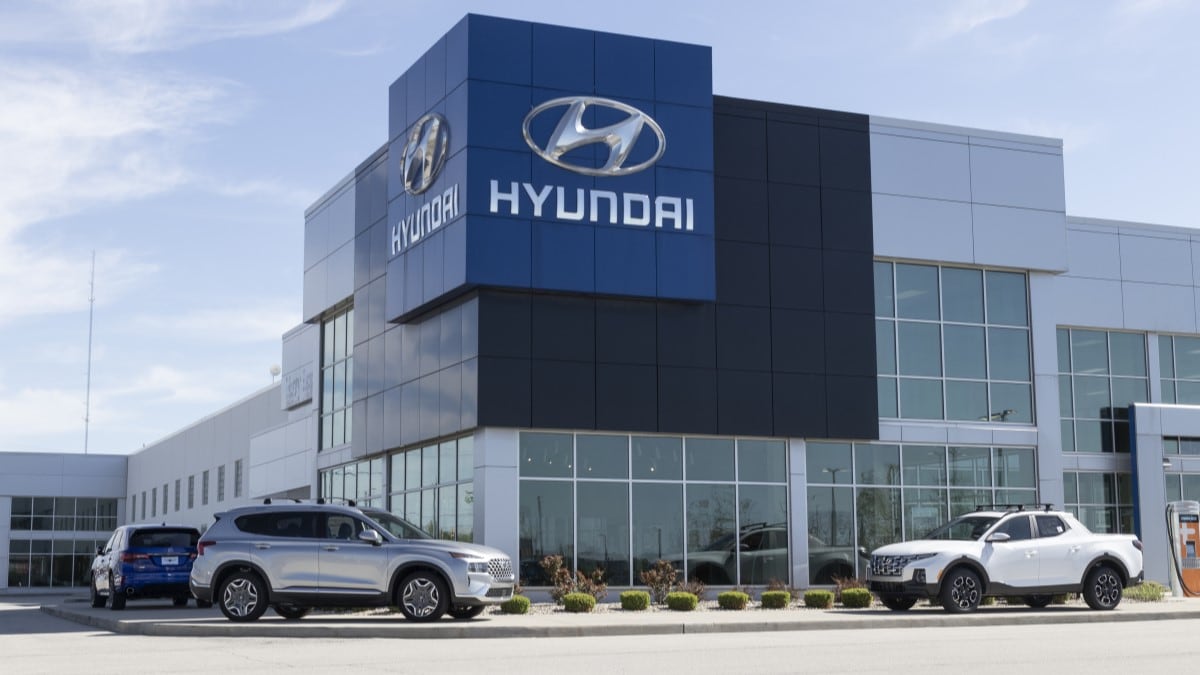
Car shoppers, dealers, and automakers have been rattled by aggressive new tariffs that could raise the price of most new cars. No one knows how long they’ll last. But a handful of automakers have now said they’ll keep prices and operations steady, at least in these early days of a new trade war.
Hyundai, Genesis Pledge Stable Prices Until June
In a statement, Hyundai promised the company “will not raise MSRP for its current model lineup for the next two months.” The pledge, the company says, will last until June 2.
Related: Tariffs Pause Production, Import of Some Cars
“We know consumers are uncertain about the potential for rising prices, and we want to provide them with some stability in the coming months,” said Hyundai Motor Company CEO José Muñoz.
The company will end a complimentary maintenance plan on 2026 models, but steady prices likely do more for shoppers’ budgets.
The move includes prices for Hyundai’s Genesis luxury lineup. “Regardless of market conditions, customers will have peace of mind knowing that MSRP will not increase, providing financial reassurance and the time to make the right choice for their transportation needs,” Genesis said in a statement.
The move does not appear to include Kia, the other major South Korean automaker selling cars in the U.S. Hyundai has part-ownership of Kia, and the two companies share many parts in their designs. But they don’t operate as one.
Toyota Pledges No Change “For Now”
Japan’s Nikkei reports, “Despite a significant jump in import costs, Toyota plans to maintain sales prices at current levels.” The company didn’t attach a time commitment to the pledge.
Related — Plant Closures, New Stickers: Automakers Start Tariff Response
“We’ll keep our operations running as they are for now,” a “representative at Toyota’s North American headquarters” told Nikkei.
Honda: Flat Prices In the Short-Term
Honda similarly gave a short-term response. An unidentified company executive told Nikkei the company “will hold off on raising prices right after the tariffs go into effect.” As for the longer term, the executive said only that Honda will “wait and see.”
Mazda Noncommittal
Mazda, meanwhile, said only that it would “consider what actions to take based on the deliberations we have had up until now.”
Inventory May Be Driving Decisions
The tariffs raised the cost of importing a new car on or after April 3. But every automaker already had a supply of new vehicles in the country before that date, all imported at pre-tariff prices.
Automakers traditionally aim to keep about 60 selling days’ worth of inventory on sales lots, with another 15 on order or in transit. Some companies entered the tariff period well over that level. Others were well under it even before a pre-tariff sales rush began.
The average automaker ended March with a 71-day supply. That’s evidence of a sales rush, as they entered the month with 89 days on hand.
Toyota and Honda have held well under the industry average in recent months.
Dealers, Not Automakers, Set Final Prices
Automakers can pledge to keep MSRPs steady. But dealers set the final sale price of every new car. They face complex calculations each time and have their own debts to pay on most new cars.
Dealers can’t necessarily sell each of the cars they currently have in stock at pre-tariff prices. They know that when automakers do raise prices, they’ll have to pay a higher price to replace each car they sell. That will likely push prices up as the trade war goes on.

